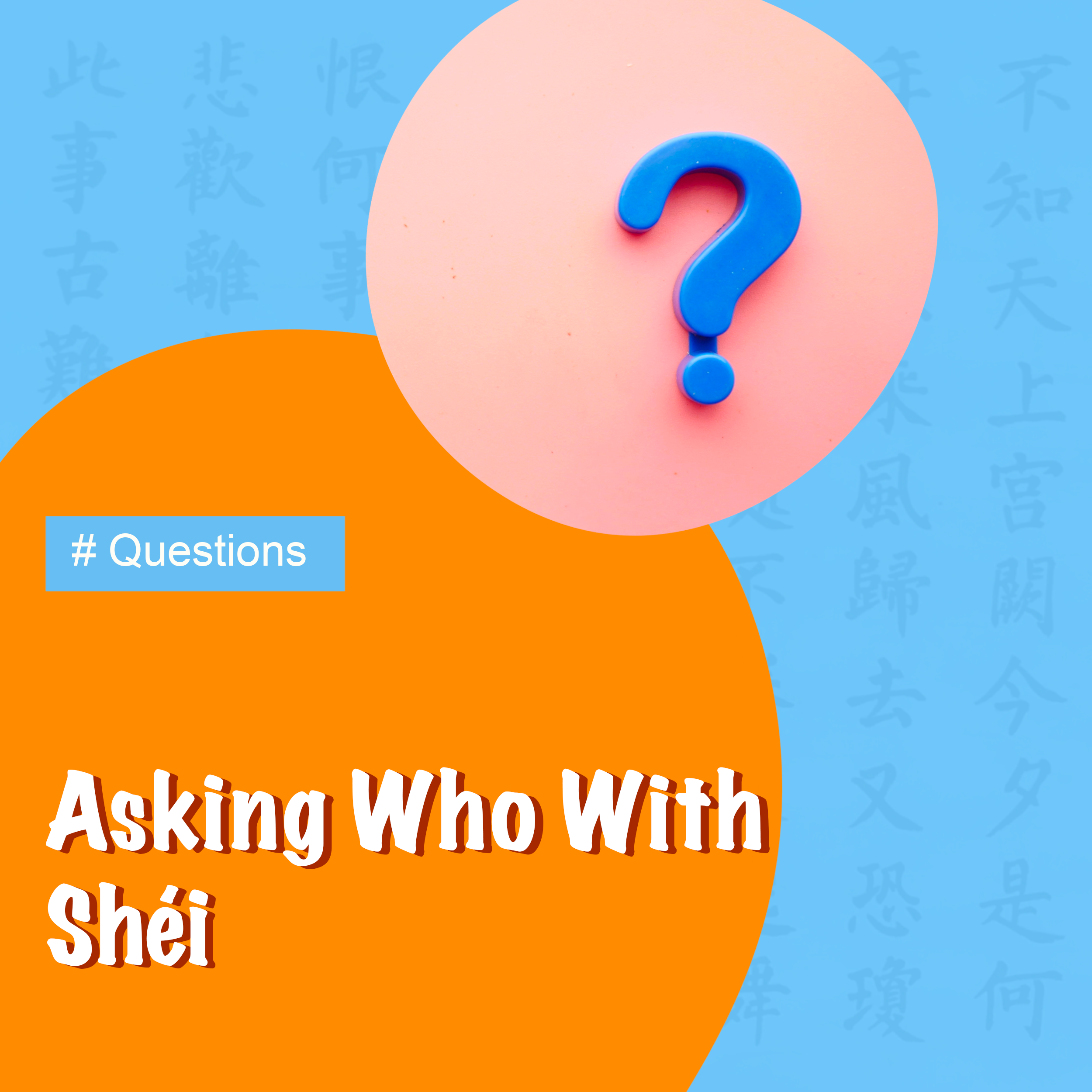Asking Who With Shéi
You will use shéi to ask “who is a person” or “who is that person”. We also place shéi in a sentence where we normally put “person” or in most cases, a subject, and it will turn into a question.
| shéi + verb ?/ subj + verb + shéi? |
|
Shéi bù míngbái?——> Who not understand? (Who doesn’t understand?) |
|
A: Shéi shì wǒmen de zhōngwén lǎoshī?——> Who is our Chinese teacher? B: Amy shì wǒmen de zhōngwén lǎoshī. ——> Amy is our Chinese teacher. A: Nǐ xǐhuān shéi? ——> You like who? (who do you like?) B: Wǒ xǐhuan Qiáodān. ——> I like Qiáodān. |
|
Subj. + time word + zài / qù + location + action |
|
A: Shéi míngtiān qù xuéxiào xué zhōngwén?——>Who tomorrow go to school to learn Chinese?→ Who will go to school to learn Chinese tomorrow? B: Wǒ dìdi míngtiān qù xuéxiào xué zhōngwén. ——> My little brother tomorrow will go to school to learn Chinese. → My little brother will go to school to learn Chinese tomorrow. |
|


